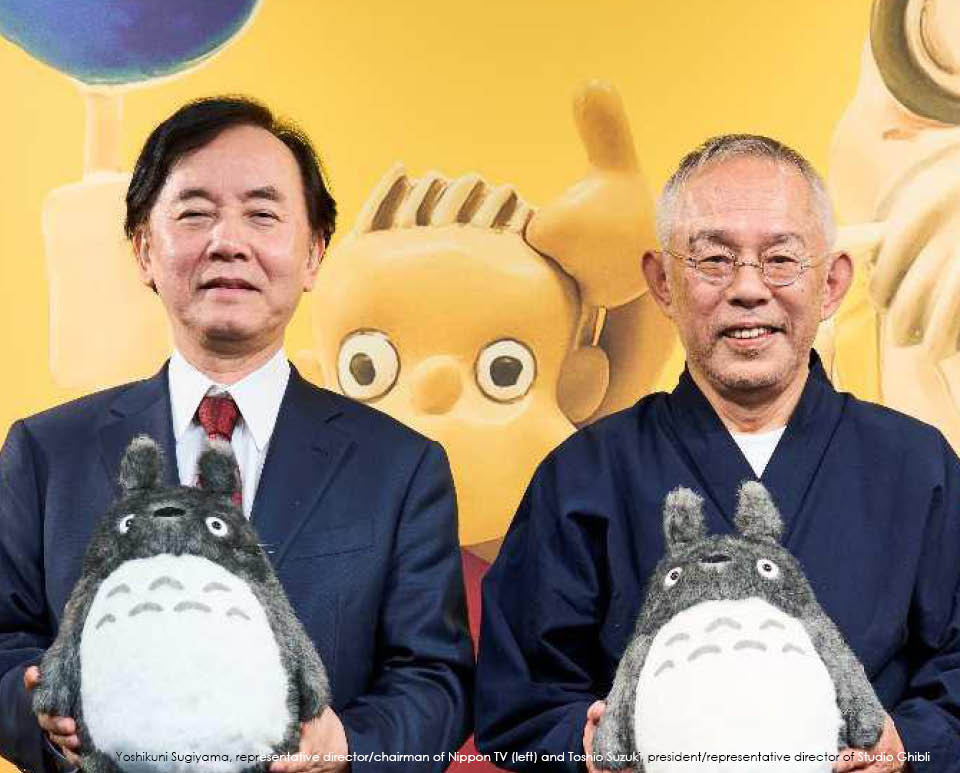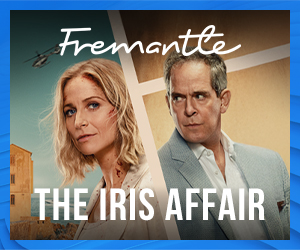
“It is difficult to carry Ghibli alone,” Goro Miyazaki, the chosen heir to iconic Japanese animation house, told his father, the 82-year-old legendary animation director and Studio Ghibli co-founder, Hayao Miyazaki. “It is better to leave the future of the company to others,” the younger Miyazaki, himself an animation producer, added in a conversation made public this month.
The father/son disappointment set off a well-documented hunt for a successor to whom Ghibli could “entrust” management. “The issue of successors has been a concern for a long time,” the studio said. Ultimately, the search led to Japan’s top commercial broadcaster, Nippon Television. The two started talking last year.
If Nippon Television had any doubts about welcoming Studio Ghibli into its fold as a full subsidiary, these were subsumed in the honour and the headlines of becoming the guardian of one of Japan’s greatest creative legacies.
Nippon TV committed to continuing “to protect the value of the brand forever” and being a safe custodian of properties such as "Spirited Away" and "My Neighbor Totoro", along with "How Do You Live?" (aka "The Boy and the Heron", 2023), which took seven years to make.
All of this hasn’t allayed fans’ fears that new management signals the end of Ghibli. Or the dramatic headlines around the world.
The monetary value of the deal, expected to close on 6 October this year, has not been disclosed. Nippon said only that “the impact on future consolidated results will be minor”.
The privately owned Studio Ghibli, established in June 1985, is capitalised at ¥10 million/US$67,000, according to documents released during the announcement on 21 September.
The deal makes Nippon TV Studio Ghibli’s largest shareholder, with 42.3% of voting rights.
Nippon TV said the acquisition, which protects Studio Ghibli’s autonomy, would allow the studio to concentrate on creation and production and increase output. ”We will continue to support Ghibli’s works...
“It is difficult to carry Ghibli alone,” Goro Miyazaki, the chosen heir to iconic Japanese animation house, told his father, the 82-year-old legendary animation director and Studio Ghibli co-founder, Hayao Miyazaki. “It is better to leave the future of the company to others,” the younger Miyazaki, himself an animation producer, added in a conversation made public this month.
The father/son disappointment set off a well-documented hunt for a successor to whom Ghibli could “entrust” management. “The issue of successors has been a concern for a long time,” the studio said. Ultimately, the search led to Japan’s top commercial broadcaster, Nippon Television. The two started talking last year.
If Nippon Television had any doubts about welcoming Studio Ghibli into its fold as a full subsidiary, these were subsumed in the honour and the headlines of becoming the guardian of one of Japan’s greatest creative legacies.
Nippon TV committed to continuing “to protect the value of the brand forever” and being a safe custodian of properties such as "Spirited Away" and "My Neighbor Totoro", along with "How Do You Live?" (aka "The Boy and the Heron", 2023), which took seven years to make.
All of this hasn’t allayed fans’ fears that new management signals the end of Ghibli. Or the dramatic headlines around the world.
The monetary value of the deal, expected to close on 6 October this year, has not been disclosed. Nippon said only that “the impact on future consolidated results will be minor”.
The privately owned Studio Ghibli, established in June 1985, is capitalised at ¥10 million/US$67,000, according to documents released during the announcement on 21 September.
The deal makes Nippon TV Studio Ghibli’s largest shareholder, with 42.3% of voting rights.
Nippon TV said the acquisition, which protects Studio Ghibli’s autonomy, would allow the studio to concentrate on creation and production and increase output. ”We will continue to support Ghibli’s works and create an environment where Ghibli can continue to make movies,” Nippon said.
The acquisition comes almost four decades after Nippon TV aired its first Ghibli title, "Nausicaa of the Valley of the Wind" (1984) in 1985, and 25 years after investing in the movie, "Bun" (1989). Ghibli titles are regulars on Nippon TV’s broadcast schedule.
In unveiling the acquisition, Nippon listed milestones in the long relationship, including an investment in "Mitaka Forest" (2001) and supporting the establishment of the Ghibli Museum.
“The entire Nippon Television Group is committed to supporting this world-class studio even more than ever before,” Nippon’s Mikuni Sugiyama, representative director, chairman and executive officer, said.



























